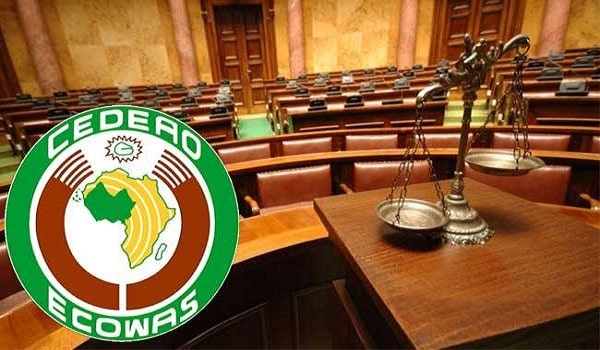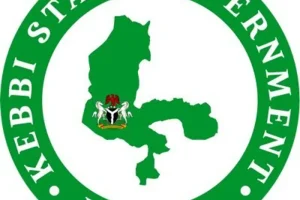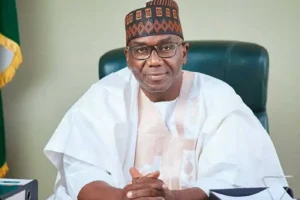
The Community Court of Justice of the Economic Community of West African States (ECOWAS) has ruled that the blasphemy-related provisions in Kano State’s legal framework contravene Nigeria’s international human rights obligations, particularly those safeguarding the right to freedom of expression.
In a verdict issued on Wednesday, the court determined that the blasphemy clauses in both the Kano State Penal Code and the Sharia Penal Code are inconsistent with Nigeria’s commitments under regional and international human rights instruments. The decision was delivered by a three-member judicial panel comprising Presiding Judge Ricardo Gonçalves, and Justices Sengu Koroma and Dupe Atoki.
The legal challenge was brought before the court by the Expression Now Human Rights Initiative (ENHRI), a Nigerian-based non-governmental organization (NGO), which sued the Federal Republic of Nigeria.
ENHRI contended that the blasphemy laws had led to widespread human rights violations, including unlawful detentions, arbitrary arrests, and death sentences handed down to individuals accused of insulting religious beliefs.
Laws Deemed Vague and Disproportionate
The court ruled that Section 210 of the Kano State Penal Code lacks the clarity required by international legal standards. It described the provision as “vague,” noting that it does not provide a precise definition of what constitutes an insult to religion. Such ambiguity, the court said, opens the door to subjective interpretations and misuse.
In addition, Section 382(b) of the Kano State Sharia Penal Code Law (2000), which mandates the death penalty for those found guilty of insulting the Prophet Muhammad, was heavily criticized. The court labeled this penalty “excessive and disproportionate,” especially within the context of a democratic society that upholds civil liberties.
According to the ECOWAS Court, these legal statutes violate Nigeria’s obligations under the African Charter on Human and Peoples’ Rights as well as the International Covenant on Civil and Political Rights (ICCPR), both of which Nigeria is a signatory to. Specifically, Article 9(2) of the African Charter guarantees the right to free expression, allowing for state-imposed restrictions only when they comply with principles of legality, necessity, and proportionality.
Mandate for Legal Reform
In its ruling, the ECOWAS Court ordered the Nigerian government to either repeal or amend the contentious sections of the Kano State legal codes. It also directed Nigeria to review any similar laws across its states to ensure alignment with its international human rights commitments.
The court emphasized that while states have the legitimate authority to maintain public order and protect religious sentiments, such authority must not infringe upon fundamental human rights. It stated that the Kano State provisions failed to pass the legal tests for necessity and proportionality required under human rights law.
On Allegations of Mob Violence
The court also considered allegations that Nigerian authorities failed to prevent violence triggered by blasphemy accusations. However, it concluded that the evidence presented—largely based on media reports—was insufficient to substantiate the claim. It stressed the need for corroborative evidence to meet the legal burden of proof in such matters.
Backdrop: The Case of Mubarak Bala
This landmark decision comes amid growing international scrutiny over Nigeria’s handling of blasphemy cases, particularly following the high-profile arrest of Mubarak Bala, a self-declared atheist. In 2020, Bala was detained for allegedly making Facebook posts that criticized Islam, Allah, and Prophet Muhammad. He was convicted in April 2022 after pleading guilty to 18 counts and was sentenced to 24 years in prison.
Bala’s case sparked global concern about freedom of belief and expression in Nigeria, with human rights organizations calling for his release and better protections for dissenting voices. His sentence was eventually commuted, and in January 2025, after serving four years, Bala was released.
Implications of the Ruling
The ECOWAS Court’s decision is expected to place pressure on Nigerian lawmakers and state governments, particularly those operating under religious legal frameworks, to reform laws that restrict civil liberties. Human rights advocates have welcomed the ruling as a major step toward protecting individual freedoms and aligning domestic laws with global human rights norms.





